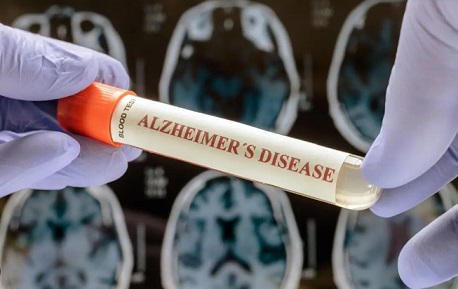Acyl-Coenzyme A Thioesterase 7 (ACOT7) - A New Biomarker To Diagnose Alzheimer’s Disease Early
Nikhil Prasad Fact checked by:Thailand Medical News Team Jul 05, 2024 9 months, 3 weeks, 16 hours, 20 minutes ago
Medical News: Alzheimer’s disease (AD) is a leading cause of memory and cognitive decline among the elderly. The disease affects millions worldwide, and with the aging population, the number of cases is expected to rise significantly. Diagnosing AD early is crucial for effective management and treatment, but current methods often detect the disease only after significant brain damage has occurred.
 Acyl-Coenzyme A Thioesterase 7 (ACOT7) - A New Biomarker To
Acyl-Coenzyme A Thioesterase 7 (ACOT7) - A New Biomarker To
Diagnose Alzheimer’s Disease Early
The Need for Better Biomarkers
A biomarker is a measurable indicator of a disease’s presence or severity. For Alzheimer’s, researchers have been searching for reliable biomarkers to help diagnose the disease early, potentially years before symptoms appear. A recent study that is covered in this
Medical News report has identified a promising new biomarker: acyl-Coenzyme A thioesterase 7 (ACOT7).
What is ACOT7?
ACOT7 is an enzyme involved in the metabolism of fatty acids, which are crucial for brain function. Previous studies have shown that ACOT7 is highly expressed in the brain and plays a role in protecting nerve cells from damage. Given its significant presence in the brain, scientists speculated that ACOT7 levels might be linked to Alzheimer’s disease.
The Study: Linking ACOT7 to Alzheimer’s
The research team from the First People’s Hospital of Wenling-China, Qingdao Huangdao People’s Hospital-China, Beijing University of Chemical Technology-China, Beijing Handian Pharmaceutical Co, Ltd.-China and Ludong University-China conducted a comprehensive study involving 366 Alzheimer’s patients and 316 healthy controls. They measured ACOT7 levels in the participants' blood and found significantly higher levels of ACOT7 in those with Alzheimer’s.
Key Findings
-Higher ACOT7 Levels in AD Patients: The study found that ACOT7 levels were significantly higher in Alzheimer’s patients compared to healthy individuals.
-Correlation with Cognitive Decline: There was a strong negative correlation between ACOT7 levels and cognitive function, as measured by the Mini-Mental State Examination (MMSE) scores. Higher ACOT7 levels were associated with lower MMSE scores, indicating more severe cognitive impairment.
-Diagnostic Accuracy: The researchers used a statistical tool called the Receiver Operating Characteristic (ROC) curve to evaluate the diagnostic accuracy of ACOT7. They found that ACOT7 had a high diagnostic accuracy, with an area under the curve (AUC) of 0.83. This means ACOT7 can reliably distinguish between Alzheimer’s patients and healthy controls.
How ACOT7 Works in Alzheimer’s
r />
The study also explored how ACOT7 might be involved in Alzheimer’s disease at the molecular level. Alzheimer’s is characterized by the accumulation of amyloid-beta (Aβ) plaques in the brain, which are toxic to nerve cells. The researchers found that suppressing the ACOT7 gene affected the production of Aβ, suggesting that ACOT7 might play a role in the disease’s progression.
A Potential Game-Changer in AD Diagnosis
If these findings are confirmed by further research, ACOT7 could become a valuable tool for early Alzheimer’s diagnosis. A simple blood test measuring ACOT7 levels could identify individuals at risk before significant brain damage occurs. Early diagnosis would allow for earlier intervention, potentially slowing the disease’s progression and improving the quality of life for patients.
Looking Forward
While the results are promising, the researchers acknowledge that more studies are needed to validate ACOT7 as a biomarker for Alzheimer’s. Future research will focus on larger, more diverse populations and investigate whether ACOT7 levels can predict Alzheimer’s in its very early stages, even before symptoms appear.
Conclusion
The discovery of ACOT7 as a potential biomarker for Alzheimer’s represents a significant step forward in the fight against this devastating disease. Early diagnosis through a simple blood test could transform how we manage and treat Alzheimer’s, offering hope to millions of patients and their families.
The study findings were published in the peer reviewed journal: Frontiers in Aging Neuroscience.
https://www.frontiersin.org/journals/aging-neuroscience/articles/10.3389/fnagi.2024.1345668/full
For the latest on Alzheimer’s Disease, keep on logging to Thailand Medical News.
Read Also:
https://www.thailandmedical.news/news/herbs-and-phytochemicals-creeping-spinach-a-natural-ally-against-alzheimer-s
https://www.thailandmedical.news/news/breaking-canadian-study-finds-that-stem-cells-blood-transfusions-and-tissue-transplants-can-transmit-alzheimer-s-disease
